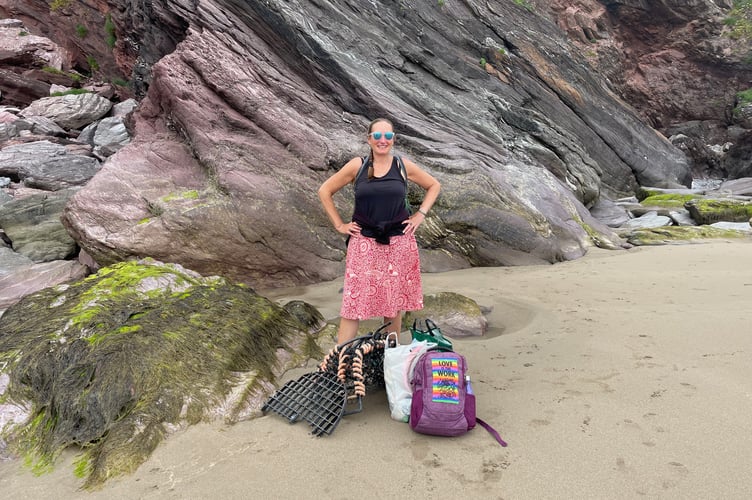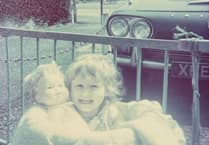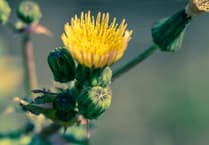This week is national beach-cleaning week, so if you do nothing else, do make a trip to your nearest beach with a bag and do a litter pick. The tides are exceptionally high at the moment, and with wind added to the mix, there's likely to be plenty of plastic to collect.
I've been a beach cleaner for years, always taking a bag with me whenever I go to the coast. I feel lost without one now. However I have only recently started going on organised beach cleans. Joining the mailing list of Rame Peninsula Beach Care has been a really good plan. I've really enjoyed meeting people. As an additional bonus, all the equipment is provided. I still always do a personal beach clean when I go swimming, but I also have the joy of a monthly social, when I can make it.
There are beach-cleaning and marine groups all around the Cornish coast, and they will always be glad of volunteers. I met someone a few days ago while collecting sea-grass seeds in Torpoint for the Cornwall Wildlife Trust. They were telling me about a scheme in Looe where they meet weekly to dismantle discarded crab lines that are then recycled. This is organised by Looe Marine Conservation Group. There are all sorts of micro-actions going on at a local level.
I find beach-cleaning a mindful activity. If you pick a patch with lots of micro-plastics, it can be slow and laborious, offering a time for quiet contemplation. You can also choose to do a stride, just picking up big pieces that are obvious, and enjoying fresh air and exercise.
Taking part in beach cleans is not just about cleaning the oceans of plastic. We all know that more will come. We know we are just scratching the surface. However if it just saves one seal, or one seabird it is worth it.
The main effect of beach cleaning is not just the clean, but the effect it has on each of us as individuals. It will change your relationship with what you buy. After filling up a bag with plastic bottles my resolve to always carry water with me in a reusable vessel is strengthened. The same is true of other plastic items.
Much of what arrives on the beach is from fishing vessels; nets, line, lures. There's also a fair bit that works down through streams from run-off on roads. Very little has been dropped on the beach itself. If you are not near a beach during beach-cleaning week, then taking a litter pick in your local lanes will effectively stop the rubbish making its way there.
There are some fabulous schemes that recycle beach waste into something useful. Have a look at Waterhaul (waterhaul.co) who make sunglasses and recycled knives and rubbish hoops from beach waste. Castaway Ropeworks (www.castawayropeworks.com) in Hayle make gifts and pet toys from fishing gear. Wild and Sea (www.wildandsea.co.uk) sell recycled ocean travel mugs, Cornish Spliced (cornishspliced.co.uk) offer mats and dog leads made from ghost nets. All great ideas for presents.
I also like to follow inspirational Instagram accounts. I love smartie_lids_on_the_beach and emilybeachplastic. One of my favourites has to be Rob.Arnold.Art. A post of his I feel is particularly relevant to this article is a beautiful mosquito made from beach debris, accompanied by the Dalai Lama quote "if you think you're too small to make a difference, try sleeping with a mosquito." So true. Time to head to the beach with a bag!





Comments
This article has no comments yet. Be the first to leave a comment.